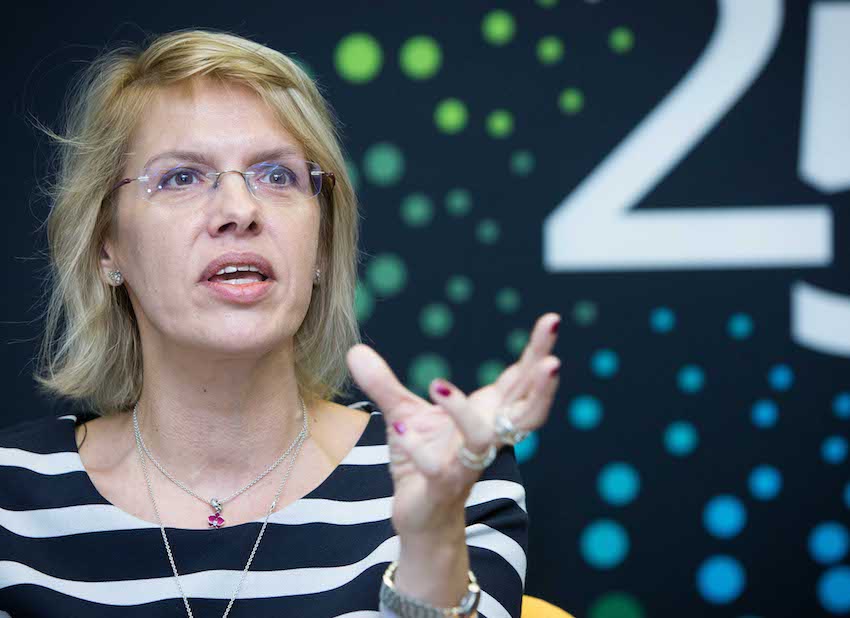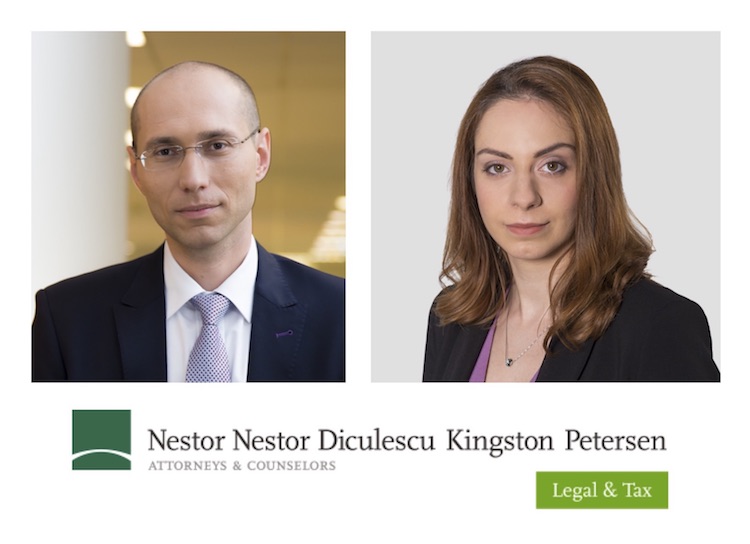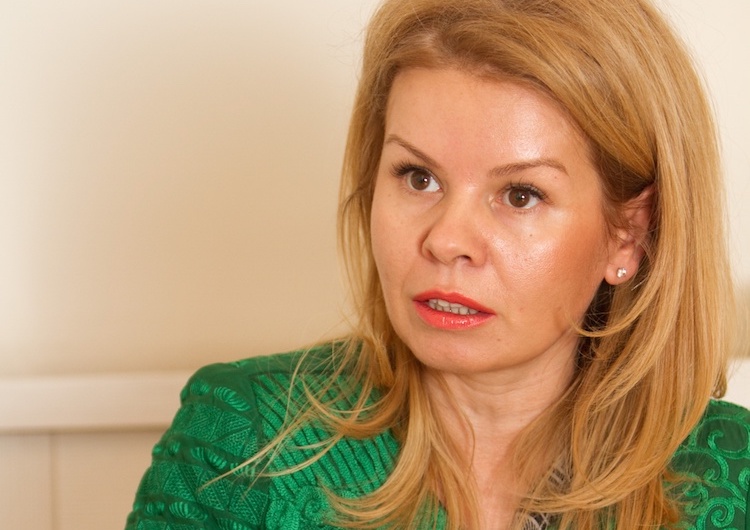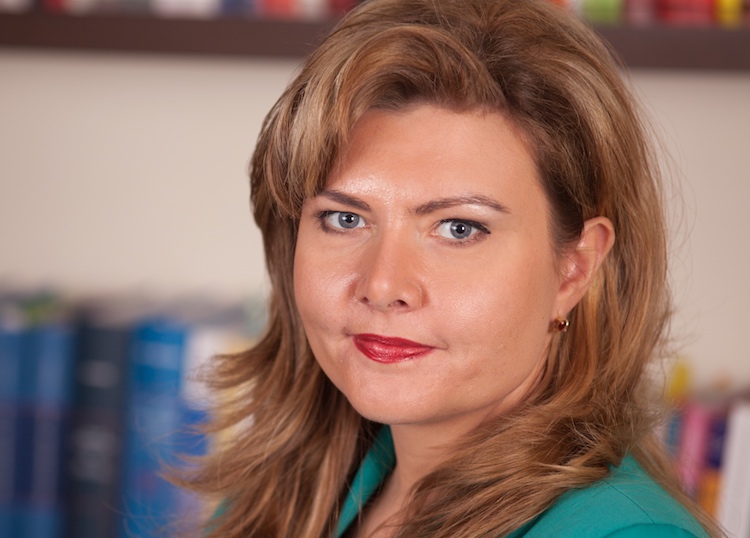Delivering a good service in a business in motion
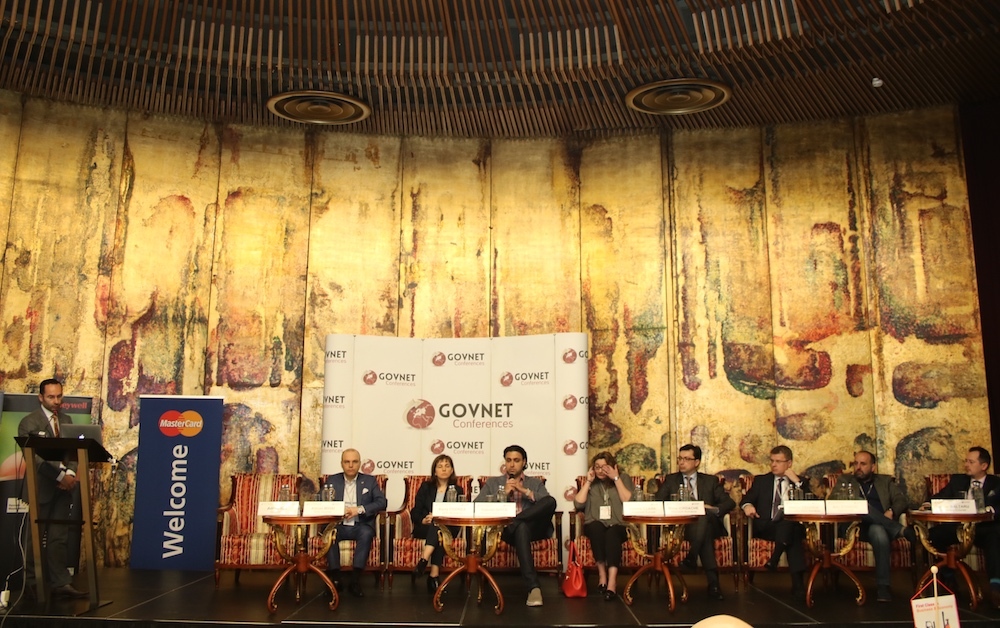
Courier business is still riding high following the fast pace development of online shopping. With annual growth rates of 10 to 15 percent and good profit margins, this seems an attractive line of business. The reality shows that offering a good service in courier and postal sector is a challenging task and clients will react quickly if something goes wrong in the delivery business.
The impact of the increasing flow of orders towards the courier companies, the specific requests regarding the delivery services and the logistic challenges generated by these, the barriers of credit card payment at delivery, as well as the development trend of fix pick-up points, are few of the subjects tackled by the representatives of the courier and postal services providers present the third edition of the Romanian Courier & Postal Services Forum, organized by GOVNET Conferences with the support of ANCOM, A.O.C.R., and ARILOG.
A sector closely following the changing habits of consumers, in continuous evolution and responding to more and more diverse requests from clients bring challenges to the couriers every year. The response to the final consumers’ needs has to be a creative and prompt one in order to maintain the image of a trustworthy partner.
The President of ANCOM, Catalin Marinescu, talked about the digital challenge couriers are confronting with: the digital revolution, consumption preferences of the users of postal services- contrasting between individuals and companies, and also the European strategy regarding a unique digital market.
The courier market is in continuous growth, with a rate of 10-15 percentages yearly. The market outgrows a volume of 325 million EUR in 2015, and according to Adrian Mihai’s statement, Managing Partner Fan Courier, there is a general optimism of the clients in the market when it comes to the expansion of their activities, and this aspect reflects in an increased volume of expeditions.
“The companies wish to grow, to invest, and the individuals, through rising salaries and dropping the VAT last year, generated a growth of consumption that was seen in the activity of the courier companies. I always affirmed that someone should look into what happens with a courier company as an indicator if they want to see the economic evolution. Because you, the courier, take over what the market offers you. And if the market offers a lot, that means the economy of that country is growing.”
The distortions in the activity of some companies within the couriers market at the end of last year produced negative effects in the operational flow and the logistics of couriers, generating unpredictable volumes of orders that entailed a crisis management: “When you foresee an expansion, you prepare for it. When you’re unprepared, you create discomfort to your clients, to the new clients, and a general discomfort in the market, and I don’t think anyone wishes that”, adds Adrian Mihai.
Karla Codrea, CFO of DPD Romania, certified the existence of an unforeseen volume in the first part of the year and in the company she represents: “This growth arrived after the Black Friday phase, when the delivery capacity was increased anyway, and the couriers saw that coming”.
Mihai Iordache, Enterprise Director at Microsoft, drew attention on the importance of the intelligence component of the operational activity of couriers, and explained the impact technology could have in the internal processes: “The e-commerce area and the entire online activity cannot be operationalized without IT support. The digitization area makes an impact on the business.(…) When it comes to loaded periods like Black Friday, although sometimes you cannot foresee exactly the volumes, you could address all these aggressive online campaigns of the retailers very efficiently with the required instruments when it comes to internal organizing”. With a short imagination exercise, he proved how avoiding certain operational costs through route optimization could lead to other investments in the development of a company: “The intelligent translation of the existing information that companies have at this moment can generate economies of approximately 250 000 EUR/company/year”.
“Black Friday has changed the face of the way that we operate and do business. It means the CEO’s are now more focused on logistics and planning how they can do things differently so that the resources accessed in stock are a lot better managed. So they are now looking at ways such as instead of having a single sales event, they are now looking at a week or a month long event. This is less strained on the couriers”, Justine Clark, Industry Mk. Manager Transport & Logistics, Honeywell Europe related.
PrioriPost, the fast delivery service of the Romanian Post will become a much more dynamic and active company in the fast parcel post area, says Alexandru Petrescu, the General Director of the Romanian Post”, as a response to the increasing demands in the express segment: “The economic reanimation of PrioriPost is dependent to the economic reanimation of the Romanian Post, which is the leading player in the correspondence market, a market that we lost year by year, step by step, because of a chronic underfinancing of over 10 years. Unfortunately, the Romanian Post was not able to keep up with the two digit growth of the market exactly because of this underfinancing. I think this year will be the year when we will gather the results of the restructuring measures in the past 2-3 years”.
Another tendency in the market is the increase of volume on the delivery segment in the same day, deliveries with programmed timing, services with added value, and Lucian Baltaru, General Manager at Sameday Courier, stated that “about 10% of our clients- final consumers are willing to pay extra for this”.
Fashion UP CEO, Alin Stanciu, attests the existence of this need from his clients: “somewhere about 15-20%, and half of them are willing to pay extra, but this means we have to commit to the other half of the costs, and the courier cost is the most important cost in an online store”.
One more challenge in the courier market is the implementing of solutions for credit card payment at the delivery point. DPD Romania, altogether with MasterCard and UniCredit will deliver a project in the second trimester of this year that will make possible this facility: “We will equip the couriers in Bucharest, and afterwards, throughout the country, with MPOS devices”, assures Karla Codrea.
Gabriel Ghita, Business Development Manager Central and Eastern Europe for Mastercard, complemented Ms. Codrea with technical information: “20-25% of the online acquisitions are paid by credit card. (...) with the help of credit card payment at the delivery point, this number could reach around 30 % effortlessly (…). Moreover, aside from the number of payments that will be changed from cash to card, along come all the other benefits the couriers will get- the diminishing of the cash flow they will have to manage, the time cut of deliveries, and, why not, even promotional campaigns, and benefits for the consumers that we want to offer but so far we did not have the technical support to do it”.
The subject of investments in warehouses and palletized cargo distribution was also tackled, as a tendency of development in the activity of courier companies.
“Unfortunately, for us, the couriers, it is very hard to find a warehouse that matches our wishes. In Bucharest we have a warehouse with 168 gates. No one from the outside will build such an expensive warehouse, so we decided to build it ourselves. After we finished building it, we realized how much it helps to have an efficient warehouse, and, although our policy was to lease these buildings, we decided last year to build one of our own in Brasov, where we hope to move by May, and to save that time all our clients so desperately need”, says Adrian Mihai, Fan Courier.
Mihai Iordache from Microsoft replied that “ the outsourcing of warehouses could be avoided with the help of the intelligence that IT provides”.
Sorin Ionascu, Country Manager Romania & Moldova at Zebra Technologies, explained how the productivity of warehouses could be increased by using the right scanning devices. An end to end scanning project in a warehouse can increase its productivity with an astounding 14%, in contrast with a 2-3% the warehouses are striving to gain. “In a warehouse, everything is measured in milliseconds. (…) One would think an error in scanning is not important, but there are costs that add up in order to fix that error. It’s not all about the money, but in the same time we have unsatisfied customers if we reverse their packages. We can fix these situations with scanning devices you activate only by looking straight into them. If before we used to press buttons or shake devices, now we can eliminate that dead time and have employees that are less tired”, he explains.
Also, on the warehouse productivity solutions, SMART ID, with the voice of Managing Director Romeo Iacob, highlighted the importance of complete automation of processes in order to gain rapidity and performance. SMART ID developed an application where all the scans are centralized and provides a proof of delivery, it includes fleet management and stocks integrated maps. “We offer end-to-end solutions for couriers- from taking over the package, to sorting it and delivery towards the final client”.
Moreover, as a time saving strategy, the situation of the route remaking in the case when the client is not to be found at the delivery address was tackled. In this regard, Sameday gives the possibility of choosing one slot of three hours out of a total of six slots.
When asked about the deliveries made for their partner EMAG and their project of opening pick-up points within the offices of the Romanian Post, Alexandru Petrescu revealed: “Only 5 of the Romanian Post offices cover the e-commerce area, but we are on the verge of expanding to 40, and the volume will grow to 800 offices nationally”.
Among the aspects approached from an operational standpoint of the courier activities, the Pick-up Points were also tackled, considering how these help drop the transport costs and optimize the delivery volume. “I believe this area will register huge development, but I do not believe in a collaboration of the couriers on this matter in the near future. Probably each one of us will develop our own pick-up points”, explained Adrian Mihai.
Within this subject, Alexandru Petrescu talked about the product of the Romanian Post, Post-collect (pick up from the offices), Parcel-lockers, that is in an advanced stage of being auctioned, about the introduction of the “small package” concept, that prevails in the e-commerce area. “We are in the middle of purchasing late hour technology, synchronized with the specific of this company that has a special logistic infrastructure. All of these will help us recover in an accelerated rhythm the market share we lost in the past 7-10 years”, he explains.
The General Manager of BRILLIANT Technologies, Adrian Boaru, provided a business solution for couriers as a response to this situation - automated pick up boxes and automated parcel lockers for the residential areas: “I am sure the majority of e-commerce players will access this solution. It is an area that will allow the opening of new services”, he assures.
Being asked which are the development plans for his company and the services that will register growth, Lucian Baltaru - General Manager Sameday Courier mentioned the food-delivery sector, controlled temperature and personalized services: "At the beginning of this year, we launched the two-hour delivery service available 24/7, in partnership with a large e-tailer. We are trying to continue our growth in the areas covering controlled temperature deliveries for medical purposes, such as medicines or biological samples.
As a novelty on the local market, Pavel Penchev, CEO ECONT Bulgaria mentioned that their presence on the Romanian market since 2007 covered only Romania -Bulgaria - Greece deliveries and starting this year they will penetrate the market more aggressively through COLETTO, a "parcel shop" service, an alternative to home delivery that will be available to all users in Romania, targeting especially to individuals. Mr. Penchev’s speech highlighted the use of analytical solutions provided by SAS and how it helped them optimize their entire activity by taking the right decisions at the right time thanks to the data provided.
Horia Serbanescu, Business Development Manager of Nemo Express courier revealed that the company wishes to expand on B2C, with the help of the online platform: "We have an in-house application developed over the last three years taking into account the market needs, consisting of two parts: the one relating to the customer and our internal SAP. It is a live tracking application with a QR code 2d- a barcode that remembers up to 2600 signs. The feedback is extremely positive and we wish to promote it to the online stores and individuals, thus increasing the info uploaded in the application and the number of orders we get for this particular service."
Any development strategy brings along the increase of the car fleets. The couriers expressed their concern on vans and trucks not being delivered on time anymore. The Managing Director of the Commercial Vehicles Department within Mercedes-Benz Romania, Valeriu Zaharia, brought a solution to the table – he presented integrated solutions for the couriers: a complete product range of vans and trucks that are delivered with tailored customer service and parts, fleet board management, they can be purchased with operational leasing via financial services provided by Mercedes-Benz, and they are covered by a wide service network and full insurance. “The world is in continuous change. We want next day, same day, 2-hour deliveries, but in order to do so, we need cars that support our activity and drive us on the existing infrastructure, so that we can address the client’s needs and his will to possess the product as soon as possible”.
In the context of marketing tools that support promoting the company through social media, Horia Serbanescu added: "Social media is very helpful, but is strictly communication. Sales are not being made through social media. We can communicate with the client, we see it as an extension of our call-center. We get questions and we can fix problems quickly. Moreover, it is an excellent recruiter of personnel for certain regions of the country."
Attracting foreign financing was a topic mentioned by Alexandru Petrescu: "The general strategy for Romanian Post was to reach a financial comfort that will enable access to investment funds, commercial and investments banks. (...) There are many things to be taken care of internally, so we can eventually come up with an investment proposal that will raise a minimum level of appetite from the investment banking. I believe that this year, that is following a second profitable year, we will be able to attract a financing line that will also refer to PrioriPost division. It is the first time I mention publicly that we are in the final stage for negotiation of a mandate letter with a very important financial international financial institution, and PrioriPost division is the core for this financing”.
Related to the debate on e-commerce deliveries over the boarder that in Europe register 8% in growth, Alexandru Petrescu mentioned "a de-synch in the IT and logistical platforms that could allow direct competition with DHL, Hermes and other integrators that operate over the border. The European Commission together with Post Europe have initiated several initiatives, like a standardization program for every platform - a one tracking reference from country to country so that we can enter direct competition from a performing position along with established players".
by Mihaela Constantin



